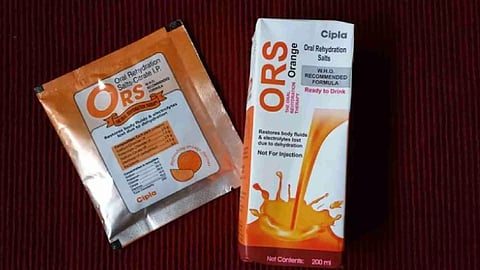

NEW DELHI: Many children with diarrhoea in India are deprived of the standard oral rehydration solution (ORS) because doctors mistakenly believe that parents do not prefer the treatment, according to a study conducted across 253 towns in two states.
The study, published in the journal Science, suggests that closing the knowledge gap between what treatments health care providers think patients want and what patients really want could help save half a million lives a year and reduce unnecessary use of antibiotics.
"Even when children seek care from a health care provider for their diarrhea, as most do, they often do not receive ORS, which costs only a few cents and has been recommended by the World Health Organization for decades," said senior author of the study, Neeraj Sood, form the University of Southern California in the US.
The study enrolled over 2,000 health care providers across 253 medium-size towns in Karnataka and Bihar.
The researchers selected states with vastly different socioeconomic demographics and varied access to health care to ensure the results were representative of a broad population.
Bihar is one of the poorest states in India with below-average ORS use, while Karnataka has above-average per capita income and above-average ORS use, they said.
The researchers then hired staff who were trained to act as patients or caretakers.
These "standardised patients" were given scripts to use in unannounced visits to doctors' offices where they would present a case of viral diarrhea—for which antibiotics are not appropriate—in their 2-year-old child. The standardised patients made approximately 2,000 visits in total.
Providers were randomly assigned to patient visits where patients expressed a preference for ORS, a preference for antibiotics or no treatment preference.
During the visits, patients indicated their preference by showing the health care provider a photo of an ORS packet or antibiotics.
The set of patients with no treatment preference simply asked the physician for a recommendation.
To control for profit-motivated prescribing, some of the standardised patients assigned as having no treatment preference informed the provider that they would purchase medicine elsewhere.
Additionally, to estimate the effect of stockouts, the researchers randomly assigned all providers in half of the 253 towns to receive a six-week supply of ORS.
Researchers found that provider perceptions of patient preferences are the biggest barrier to ORS prescribing—not because caretakers do not want ORS, but rather because providers assume most patients do not want the treatment.
Health care providers' perception that patients do not want ORS accounted for roughly 42 per cent of underprescribing, while stockouts and financial incentives explained only 6 per cent and 5 per cent, respectively.